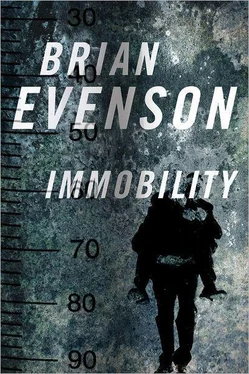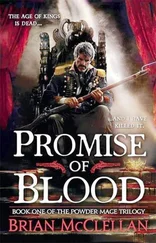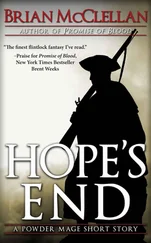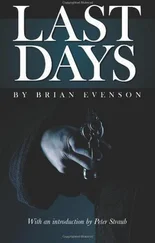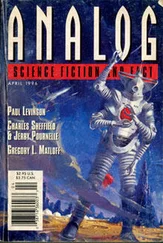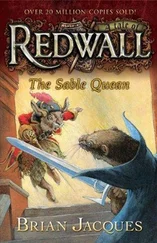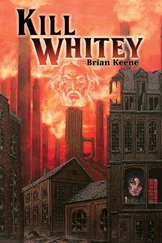The other turned to him. “Hello, burden,” he said.
“My name is Horkai,” said Horkai.
They seemed confused by that, turned to Rasmus for instruction.
“You may call him Horkai,” Rasmus said.
“Burden Horkai,” said one of the Qs.
“Just Horkai,” said the other.
“Yes,” said Rasmus. “Now take him to prepare for your journey.”
* * *
LIKE OLAF AND OLEG, the Qs seemed brothers, identical twins, but when Horkai asked Qanik about it, he just shrugged.
“We don’t have parents exactly,” Qanik said. “If you don’t have parents, how can you be brothers?”
“But I was first,” Qatik quickly added. “Of the two of us, I mean.”
“What do you mean, you don’t have parents?” asked Horkai. “Your parents are dead?”
But Qanik only shrugged. “We just know what they’ve told us,” he said.
Strange, thought Horkai. And then wondered yet again if what he was experiencing was real or if he was dreaming.
The Qs not only looked alike—they also made almost identical, perhaps exactly identical, gestures. They even had the same facial tic, a slight quiver to their chin just before they spoke. He watched them for a while, moving around the supply room, each going for the same object at the same time. Finally, he couldn’t help but ask them if they were real.
“What do you mean, real?” asked one of the Qs, maybe Qatik.
“Of course we’re real,” said the other, offended. “We’re as real as you are.”
Which didn’t exactly answer his question, at least not in a way he was comfortable with.
* * *
WHEN THEY HAD A PILE of objects gathered, one of the Qs picked him up, effortlessly it seemed, and carried him over, seating him against the wall next to it. The other mule handed him a stainless-steel pistol, an old and well-greased semiautomatic.
“It’s a Mamba,” the Q said. “Or something like it. Probably isn’t really that old, just modeled after it. God knows where half the stuff around here comes from. Works basically like a Browning. Know how to use one?” he asked.
Horkai shook his head, but his hands were already breaking the magazine out as if they knew what to do. It was full, fifteen bullets in the magazine and one in the chamber.
The other Q nodded. “You know your way around it,” he said. “You’ll do fine.”
The first said, “That’s all the bullets we have, so be careful with them.”
“Which one are you?” asked Horkai. “Qatik?”
“ I’m Qatik,” said the other Q, and Horkai looked desperately for marks that would distinguish them. There was nothing he could see. “Now, remember, it’s not enough to shoot them.”
“Who’s them?” he asked.
The Qs exchanged glances. “You can start by shooting them,” said Qatik, “but that won’t be enough.”
“Why not?”
Qatik shrugged. “They’re resilient,” he said.
“But you know that already,” said Qanik.
“What do I know?”
“Being resilient yourself, I mean,” said Qanik.
Qatik brought one big hand down on Horkai’s shoulder, making him wince. “You’ll pick it up,” he said. “You’ll do fine.”
* * *
THE GUNS THAT QATIK AND QANIK took were bigger. “But it doesn’t really matter,” Qanik told him. “They will never let us get close enough to use them.”
“Besides,” said Qatik, “we won’t be at our best by the time we arrive.”
Horkai wondered what that meant, but thought it better not to ask. Any answer the Qs would give, he was sure, was more likely to confuse the issue than clarify it.
They took packs, stuffed these with food packets and a series of small metal cylinders filled with distilled water.
“We’ll take one pack halfway,” said Qanik. “Leave it there for the way back.”
“But won’t someone steal it?” asked Horkai.
The Qs just laughed. “Have you forgotten what it’s like out there?” asked Qatik.
* * *
THEY STOOD IN THE SUPPLY ROOM, searching through the packs, counting the food packets, taking a few out, putting a few more in, checking and rechecking their guns and ammunition, until at last they were smiling.
The Qs started to climb into bulky, black full-body suits. The fabric was shiny and far from flexible, and the zippers were further covered by Velcroed flaps. Radiopaque, Horkai guessed they were. The Qs carefully checked each other’s suits to make sure that there were no openings, no gaps, then donned the hoods and affixed them with seam sealant. The front of the hood was a tempered glass faceplate, a heavily filtered breathing apparatus embedded beneath it, and a small speaker.
“Ready,” they said, their voices muffled and lifeless through the speakers.
“What about me?” asked Horkai.
One of the Qs—now that they were in their suits and had been moving around, he’d lost track again of which was which—shook his head. “You don’t need one,” he said.
“You’re not like us,” said the other.
* * *
IT TOOK A WHILE for the Qs to figure out how to get him onto the shoulders of one of them and keep him there. But when they tried to leave the supply room, they realized they were far too tall for the door, so had to take him down, carry him like a baby instead. As they set off, walking from the storage room through the common room, Rasmus stopped them.
“Can’t go yet,” he said to Horkai. “You haven’t had your shot.”
And so it was off to Rasmus’s office, where he found himself pushed down against the desk again, held down this time by two figures in shiny black hazard suits. He heard Rasmus rustling behind him and felt the sudden jab of the needle, the terrible surge of pain. He tried this time not to fight it, not to strike out, and as a result convulsed only a little.
“A big one,” Rasmus admitted. “Should last you for a while.”
He reappeared, his hands bloody.
The Qs let go of his arms and left him there a moment, lying panting on the desk, until he motioned to them that he was all right. Then one of them picked him up, cradling him like a baby again.
There had to be a ceremony before they set off. Rasmus gave a speech to the community about how here was Horkai, the one who had promised to help, promised to save them. Everyone listened in silence, as if politely. Horkai didn’t see Oleg and Olaf, wondered distractedly what had happened to them. He thought about asking Rasmus about them, but there was never a free moment. “Our hope, Josef,” said Rasmus, turning to him, “nay, our very lives, are in your hands.” There was a halfhearted smattering of applause. Horkai did his best to smile, gave a feeble half wave. And then Rasmus led Horkai and his companions up the stairs to the outer door. The rest of the community trailed along up the steps behind him but stopped well shy of the metal door. At Rasmus’s prompting, they all shook hands, and then Horkai and his two companions opened the door, climbed the granite steps, and went out into the waste.
A HOT VICIOUS WIND AROSE almost immediately. The sun was out, low to the east, just cresting the mountains, but the air was so hazy with dust that it appeared only as a yellow smear in a filthy sky. A scattering of cockroaches preceded them, scuttling around the mules’ feet and out of their way, the only other living things immediately visible in the landscape.
They quickly crossed what had once been a walkway, the concrete now cracked and broken. There were traces of other intersecting walkways, with patches of gouged dirt in between that could’ve once been lawn. Craning his neck to look behind, back near the opening they had come out of, he saw a large, shattered glass roof, twisted bits of metal jutting out of it, the air here dry enough that despite the time that had passed, the metal had hardly begun to rust.
Читать дальше
